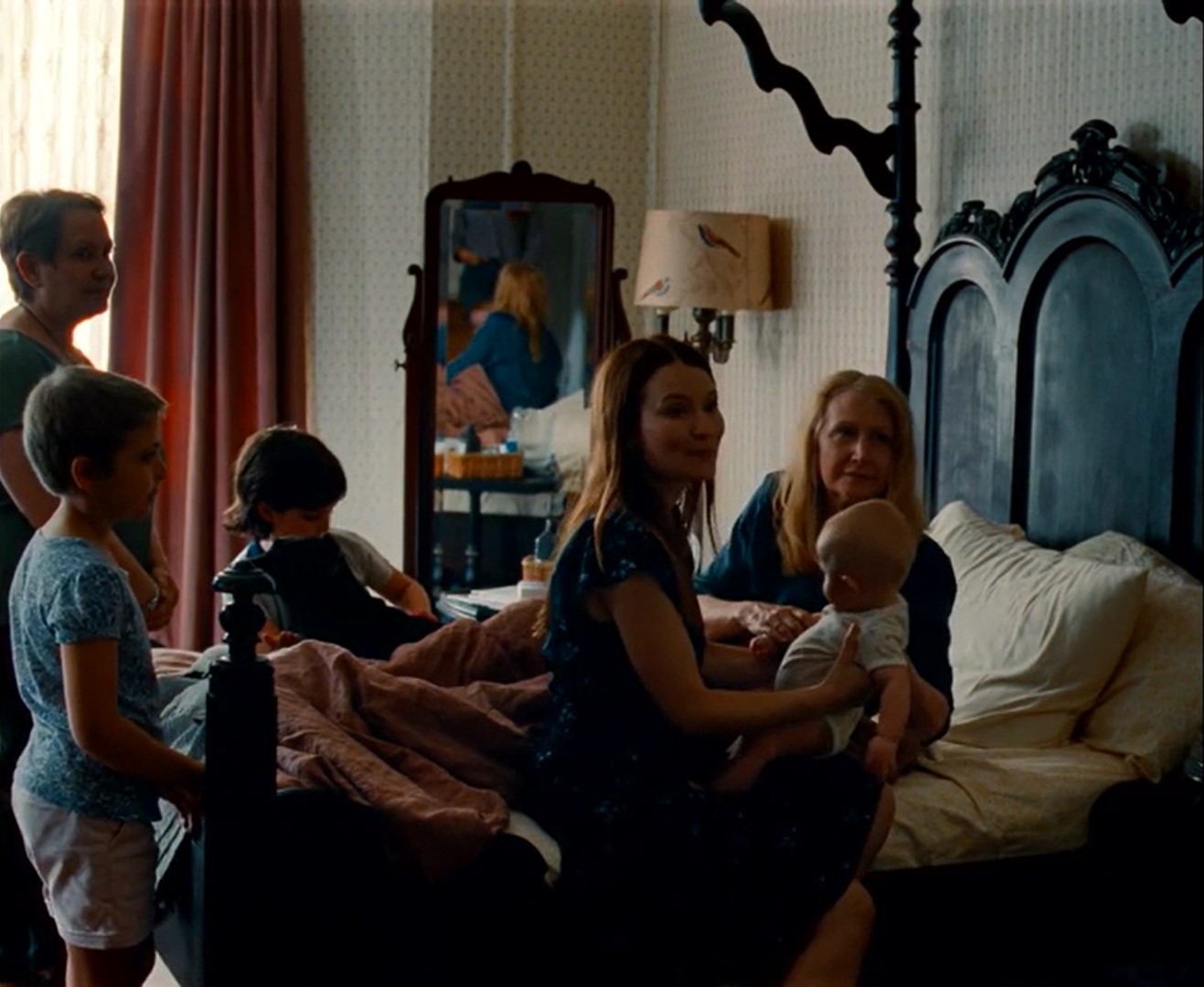Movie Info
Movie Info
- Director
- Andrea Pallaoro
- Run Time
- 1 hour and 46 minutes
- Rating
- R
Relevant Quotes
“Honor your father and your mother…

Andrea Pallaoro’s film centering on a transgender daughter returning to help her family care for the dying mother who cast her out a couple of decades ago is a slow burn drama difficult to watch. It is not its slowness but the camera technique that almost made me give up on it—very seldom have I consulted my watch to se how much time was left, but during this time I must admit to multiple glances. More on this later.
Monica (Trace Lysette) is a massagist who may have worked as a sex provider, judging by her many messages on her cellphone. When we first see her, she is upset by someone who refuses to take her calls. She experiences a series of abandonments–from her frustrating attempts to get a current lover to accept her calls to a new lover’s standing her up for a date, and of course, her mother’s rejection of her twenty years earlier.
Soon she is returning from California to her Ohio home, summoned by the sister-in-law Laura (Emily Browning) whom she has never met. Her brother Paul (Joshua Close) says he scarcely recognizes her. They have employed a compassionate caregiver, but their mother Eugenia (Patricia Clarkson), suffering from a brain tumor, has worsened, along with her resistance to any kind of help. Because of her dementia, she does not recognize Monica, and the latter chooses not to reveal her identity. Thus, this is not a drama climaxing in a warm reconciliation, but a study in emotions and relationships conveyed far more in looks and the touching of hands than in words. Indeed, sparse barely describes the dialogue.
Slowly, as Eugenia and Monica interact, a rapport develops between them. After Monica experiences a series of disappointments—stood up by a would-be lover she has met online, a desperate sexual encounter in a stranger’s van, and then the breakdown of her own car—she falls into bed with her Mom upon returning home. Monica is the first to wake up, her open eyes perhaps signifying a glimmer of recognition of the woman sleeping beside her. No reconciliation gushing with words of forgiveness here, just a close-up of a tear trickling from Eugenia’s eye.
Monica’s reintegration back into the family is also well depicted by her growing relationship with the oldest of Laura and Paul’s three children, Brody (Graham Caldwell), a boy who likes to sing—and who, it is gently suggested, might be facing gender problems himself. He has been chosen to sing the National Anthem at a school event and is nervous about it. Just before his performance, Monica gives him her treasured small music box that she has been using as a pill box, telling him that it will protect him as it has her. Filled with confidence, the boy belts out the difficult song. Monica is in the audience beside her brother and sister-in-law, just as proud of him as his parents are.
While writing about the film, I have convinced myself that I like it far better than when I began this review. The small box frame in which we seldom see any long or establishing shot, but only close-ups of a character, are still maddening to me. But now I realize they are part of the filmmaker’s intent to focus solely upon the person depicted. Just as we often can see nothing of the person’s surroundings, so the script provides us with little or no backstories of Monica and her various relationships. This film is a real contribution to us at a time when regressive forces all over the country are attacking transgender people, even children, who deviate sexually from the norm. I would even say that it is the duty of the open-minded to go out and support this film.
No questions for this film.

